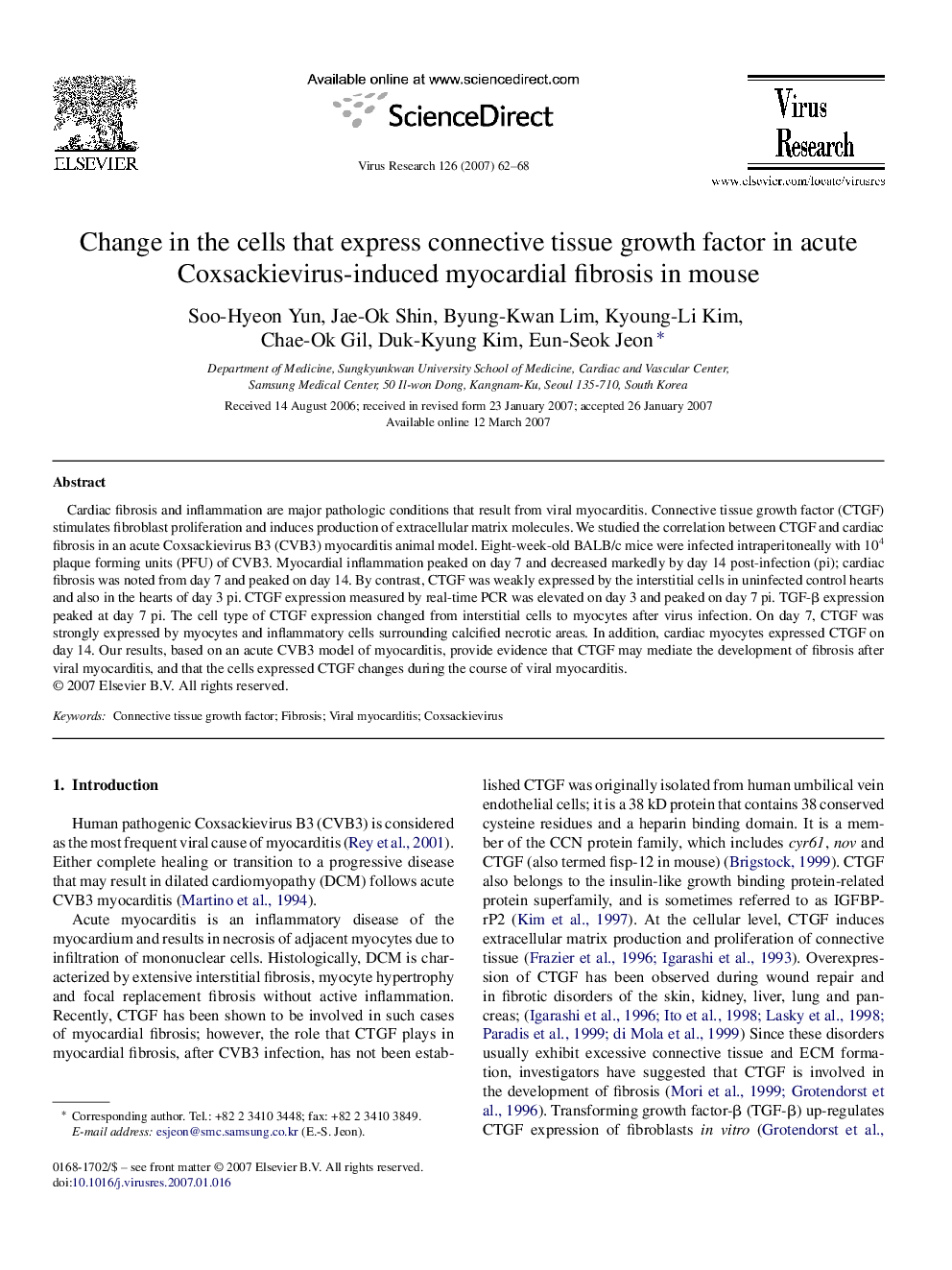| Article ID | Journal | Published Year | Pages | File Type |
|---|---|---|---|---|
| 3430896 | Virus Research | 2007 | 7 Pages |
Cardiac fibrosis and inflammation are major pathologic conditions that result from viral myocarditis. Connective tissue growth factor (CTGF) stimulates fibroblast proliferation and induces production of extracellular matrix molecules. We studied the correlation between CTGF and cardiac fibrosis in an acute Coxsackievirus B3 (CVB3) myocarditis animal model. Eight-week-old BALB/c mice were infected intraperitoneally with 104 plaque forming units (PFU) of CVB3. Myocardial inflammation peaked on day 7 and decreased markedly by day 14 post-infection (pi); cardiac fibrosis was noted from day 7 and peaked on day 14. By contrast, CTGF was weakly expressed by the interstitial cells in uninfected control hearts and also in the hearts of day 3 pi. CTGF expression measured by real-time PCR was elevated on day 3 and peaked on day 7 pi. TGF-β expression peaked at day 7 pi. The cell type of CTGF expression changed from interstitial cells to myocytes after virus infection. On day 7, CTGF was strongly expressed by myocytes and inflammatory cells surrounding calcified necrotic areas. In addition, cardiac myocytes expressed CTGF on day 14. Our results, based on an acute CVB3 model of myocarditis, provide evidence that CTGF may mediate the development of fibrosis after viral myocarditis, and that the cells expressed CTGF changes during the course of viral myocarditis.
